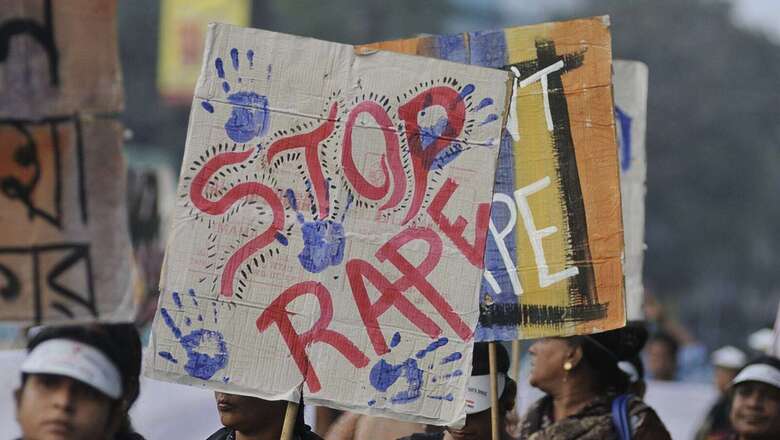
views
It’s a violation of dignity and privacy, is in contravention of the law, and reflects a ‘patriarchal mindset’ in the words of the Supreme Court — why then is the two-finger test to gauge the ‘virginity’ of rape survivors practised so openly in India?
This is a question that also irked the country’s apex court on Monday as a bench comprising Justices DY Chandrachud and Hima Kohli banned the regressive method as “patriarchal” and “sexist”.
“This court has time and again deprecated the use of two finger test in cases alleging rape and sexual assault. The so called test has no scientific basis. It instead re-victimises and re-traumatises women. The two-finger test must not be conducted….The test is based on an incorrect assumption that a sexually active woman cannot be raped. Nothing can be further from the truth”, the bench observed while dictating the judgment.
It added: “The probative value of a woman’s testimony does not depend on her sexual history. It is patriarchal and sexist to suggest that a woman cannot be believed when she states that she was raped merely because she is sexually active.”
The court also directed the Union Health Ministry to ensure that survivors of sexual assault and rape are not subjected to the two-finger test.
So, what exactly is the invasive method that made the Supreme Court see red? News18 decodes:
What is the two-finger test?
The two-finger test is an unscientific procedure that involves inserting two fingers into a woman’s vagina to determine the laxity of vaginal muscles, thereby determining ‘virginity’. In some cases, it is done by inspecting the size of a vaginal opening and for tears in the hymen.
As per WHO, neither of the methods in the two-finger test can prove that a woman has had a vaginal intercourse or not. It is based on the assumption that a sexually active woman is less likely to have been sexually assaulted.
What are the problems with the test?
To begin with, the test is unscientific because the hymen can rupture due to several reasons other than sexual intercourse, including playing sports, riding a bicycle, using tampons, or during medical examinations.
Doctors are also of the opinion that psychological state plays a major role when it comes to gauging the laxity in the vaginal muscles since in the case of a distressed person, the muscles may also be tense — as would be the case for a rape survivor.
On a moral and ethical level, the two-finger test aims to establish if the woman is “habituated” to sex. It then seeks to discredit her testimony based on the assumption that a woman with a sexual history cannot claim to be raped.
The test also violates privacy and dignity since it is usually carried out without the consent of the survivor and seems to shift the onus of the crime on the woman instead of the perpetrator. The woman, who has borne the pain of a sexual assault, is forced to undergo the same discomfort and humiliation, which adversely affects her physical and mental health.
Has it been called out before?
A year after the 2012 Nirbhaya gangrape and murder case, The Criminal Laws (Amendement) Act, 2013 made the two-finger test illegal.
The next year, the World Health Organisation (WHO), UN Women and UN Population Fund (UNFPA) released a clinical handbook titled ‘Healthcare for Women Subjected to Intimate Partner Violence or Sexual Violence’, which specifically states, “There is no place for virginity (or ‘two-finger’) testing; it has no scientific validity.” Further, the handbook also asks healthcare workers to remember that “being sexually assaulted is a traumatic event” and to “be very careful not to increase her distress”, The News Minute reported.
In 2013, the Supreme Court held that the two-finger test on a rape victim violates her right to privacy, and asked the government to provide better medical procedures to confirm sexual assault. A bench of Justice BS Chauhan and Justice FMI Kalifulla said even if the report of the two-finger test is affirmative, it cannot give rise to the presumption of consent on part of a rape victim.
The judges said rape survivors are entitled to legal recourse that does not violate their physical or mental integrity and dignity as they referred to various international covenants. “Medical procedures should not be carried out in a manner that constitutes cruel, inhuman or degrading treatment and health should be of paramount consideration while dealing with gender-based violence,” it said.
Any latest cases?
In one of the most high-profile cases, a woman officer of the Indian Air Force (IAF) — who had accused her colleague of rape last year — had alleged that she was subjected to the illegal two-finger test to confirm the sexual assault.
The 28-year-old woman officer, who was allegedly raped on the Air Force Administrative College campus in Tamil Nadu’s Coimbatore district, has said that she was made to “relive the trauma”. “Only later did I find out that the two-finger test is not supposed to be done for a rape exam. This action made me nauseous enough to relive the trauma of being raped,” according to the first information report (FIR) she filed with the Tamil Nadu Police on September 20, the Hindustan Times reported.
The air force, however, had denied the allegation, with Chief Air Chief Marshal VR Chaudhari saying the issue was ‘misreported’.
What are the rights of sexual assault survivors?
To begin with, any medical examination needs to take place with the woman’s consent. The procedure must be explained to the survivor and a female attendant should be present at all times. If the survivor is a minor, the consent of parents must be sought.
The Ministry of Health and Family Welfare (MoHFW) guidelines state that “consent should be taken for the following purposes: examination, sample collection for clinical and forensic examination, treatment, and police intimation.” It also says that “doctors are legally bound to examine and provide treatment to survivors of sexual violence.”
According to the MoHFW guidelines, the doctors should inform the survivors or their guardians (in case of minors) about what will be done, for multiple reasons. One, so that medico-legal examination is done to assist the investigation, arrest and prosecution of those who committed the sexual offence. Further, because the person’s body would need to be examined for injuries and to collect forensic evidence to assist the investigation. This may include obtaining samples of clothing, hair, foreign substances, saliva, pubic hair, etc.
If the survivor is a child, the parent or guardian has the full right to refuse either only the medico-legal examination or evidence collection or both. However, the MoHFW clearly states that this refusal should not be used to deny treatment to the survivor. While the hospital and doctor are bound to report the sexual violence to the police as per law, they should not do without the consent of the survivor or their guardian/parent. And that too shall not lead to the denial of treatment.
Read all the Latest Explainers here













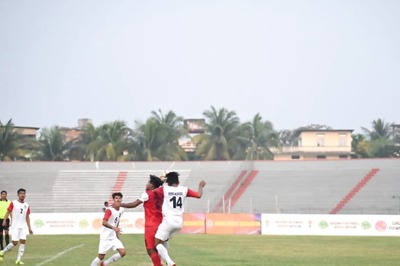
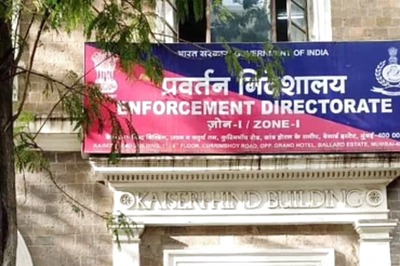
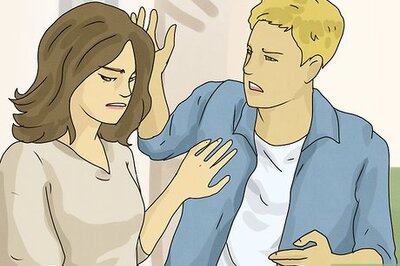



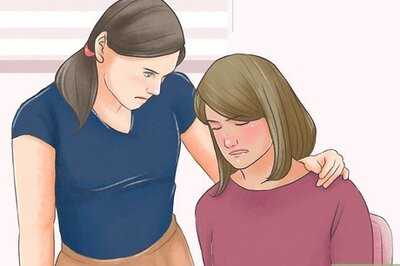
Comments
0 comment